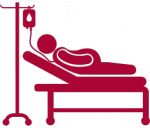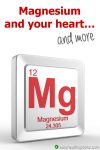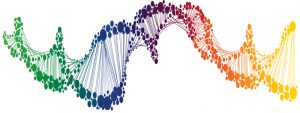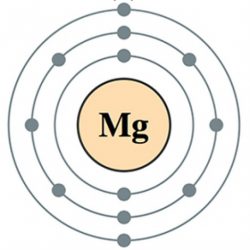 Sudden Infant Death Syndrome often known by the acronym SIDS must be one of the most devastating events that can happen to a family. Parents immediately start to put blame on themselves, questioning their behaviour and wondering what they could have done differently. This is an understandable reaction to this tragedy but with support of family and friends, a parent will hopefully come to realize that nothing could have been done and it’s not their fault.
Sudden Infant Death Syndrome often known by the acronym SIDS must be one of the most devastating events that can happen to a family. Parents immediately start to put blame on themselves, questioning their behaviour and wondering what they could have done differently. This is an understandable reaction to this tragedy but with support of family and friends, a parent will hopefully come to realize that nothing could have been done and it’s not their fault.
Protect your baby against SIDS
BUT, and this is a big but, there is something that expectant mothers can do to help protect their unborn child from becoming a victim of SIDS. This protection is simple and safe and in fact, will protect the expectant mother as well as the child from many kinds of illnesses and conditions, now and in the future.
You should be told!
This is something that should be relayed to you by your medical professional and/or obstetrician but unfortunately, this is often not the case. This simple preventative measure should be available to all pregnant women. It is safe, cheap and necessary for the health of mum and baby, not to mention the rest of the family.
 Will you take it?
Will you take it?
You know what I’m talking about but will you take it or will you take a chance? Are you pregnant or trying for a baby, if so, this mineral is one of the most important nutrients necessary to keep healthy and protect yourself against the most devastating conditions that afflict mankind. This is not for just when you’re pregnant, this is for all time.
But let’s get back to SIDS. What does the research say about this condition?¹ Despite the research that’s been done regarding SIDS, Cerebral Palsy and Preeclampsia and citing Magnesium (Mg) deficiency as exacerbating or causing these serious conditions, little emphasis is given to the mother and child about receiving adequate amounts of this vital alkaline metal.
Temperature control
Beneficial effects of Mg supplementation has been well established for mother and fetal development and for the baby at birth. This also applies to babies’ first months when SIDS often strikes. One of the possible causes of SIDS is thermoregulation.² Temperature control is critical in the baby’s early stages of life. If the child is deficient in Mg gained from a deficient mother, this regulation can be compromised. Why is this? Mg is known to be a  regulator of temperature in the human body. If you want to take your baby’s temperature, use the area directly under the joint where the arm connects to the shoulder, known as the axilla. The acceptable axilla temperature range is 36.7 – 37.3°C. (98.06 – 99.14ºF).
regulator of temperature in the human body. If you want to take your baby’s temperature, use the area directly under the joint where the arm connects to the shoulder, known as the axilla. The acceptable axilla temperature range is 36.7 – 37.3°C. (98.06 – 99.14ºF).
Reducing the risks
There is much an expectant mother can do to reduce the risks of problems for her and her child, during pregnancy and for her baby’s first months. The chances of having Preeclampsia, her baby getting Cerebral Palsy or being struck by SIDS can be drastically reduced by this simple supplement. Pregnant women are advised to take more Mg than the normal RDA for adult females, but the amounts advised are still too low according to experts. RDAs range between 300mg – 400mg a day for pregnant women, depending on the source.
Mg from food?
Gaining Mg from food is, of course, the best way, but unfortunately our foods are depleted of Mg in our modern diet due to agricultural practices and junk food. The bias towards Calcium (Ca) supplementation, which is not matched by Mg, is causing many problems of calcification in the body and excitation of cells resulting in cell death with massive amounts of cardiovascular diseases in the general population. Mg and Ca must be balanced to work in harmony together. An excess of Ca is very common, an excess of Mg very rare.
 Suffocation
Suffocation
Apart from temperature control, one of the other risks with SIDS is suffocation. Up to the early 1990s, mothers were advised to put baby down in the prone position ie. on their tummy. Research came out indicating that lack of Mg in the new born produced muscle weakness, the weak neck muscles disabling a suffocating infant from moving his head to one side.³ Studies also suggested that low infant birth weight and muscle weakness was exacerbated by low Mg levels in the mother and consequently the fetus.
From the mid 1990s mothers were advised to put babies on their backs. New studies and reviews confirmed that SIDS deaths were coming down at a remarkable rate around the world and this was attributed to the new directive.
 Old research
Old research
There has been a good amount of Mg research, particularly in the last century and I think the fact the research is old, precludes it from being considered in this modern age. Just because something was researched years back, does not make it unworthy. In fact, I would trust older research, more than modern research. Dr John Ioannidis, Professor of Medicine and of Health Research and Policy at Stanford University School of Medicine states “Much of what medical researchers conclude in their studies is misleading, exaggerated, or flat-out wrong. So why are doctors—to a striking extent—still drawing upon misinformation in their everyday practice?”4
There is so much corruption since Big Pharma and other large consortiums are more controlling of the medical profession. You can’t be sure if the researcher is affiliated to a drug company or if the researcher/s named, actually did the research! Research results are known to commonly be ‘massaged’ and drugs rushed through the FDA on the strength of low-grade research often based on bad science.
 Look after yourself
Look after yourself
If you make sure you are replete in Mg and that you’re eating a healthy diet with no sodas or junk food, no smoking and no alcohol, getting gentle exercise and a good night’s sleep, you should be well on your way to having a happy healthy pregnancy and producing a happy and healthy baby. This site will give you added information on how to protect your child against other hazzards like suffocation, overheating. Here is a leaflet that they produce which gives great advice on what to do and what not to do.
alcohol, getting gentle exercise and a good night’s sleep, you should be well on your way to having a happy healthy pregnancy and producing a happy and healthy baby. This site will give you added information on how to protect your child against other hazzards like suffocation, overheating. Here is a leaflet that they produce which gives great advice on what to do and what not to do.
Why the lack of information?
IMHO, the lack of information about this mineral and other nutrients, lies with the predisposition of the medical profession, to prescribe pharmaceutical drugs in preference to a natural treatments like Mg. There are exceptions to this lack of knowledge by medics and I list three below:
 Preeclampsia
Preeclampsia
Mg treatment is given to pregnant women for preeclampsia. Preeclampsia is a serious condition that occurs in pregnancy. A woman deficient in Mg is more likely to suffer with this condition. This is common knowledge by obstetricians and other doctors. So why don’t medics advise their patients to take a Mg supplement and eat Mg rich foods? This should be standard procedure for the first pre-natal consultation!
 Atrial Fibrillation
Atrial Fibrillation
My husband was treated with intravenous (IV) Mg sulphate when he suffered serious arrhythmia attacks. These attacks happened quite frequently and he had to be rushed to hospital to have his treatment. So why was my late husband not given a Mg supplement when first diagnosed with atrial fibrillation? This, again, should be standard procedure for all patients with this debilitating condition, which my husband died of!
 Heart Attack
Heart Attack
In some hospitals, IV Mg sulphate is given to patients presenting with heart attack. So why are we not advised by our cardiologists to make sure our Mg levels are at the optimum? This simple piece of information would save lives and diminish much distress and anguish!
I am at a loss!
I am at a loss as to why and how this information is not relayed to the population as a whole, a population that is riddled with nutrient deficiencies with Mg being the most vital. Mg controls hundreds of enzymatic processes. It controls our energy production. It is vital  for DNA and RNA production. Mg regulates the other key electrolytes, Ca, Sodium (Na) and Potassium (K). It is essential in protein synthesize and is vital for healthy muscle, including our heart muscle. It is intimately involved in nerve transmission and is essential for the health of the CNS (central nervous system).
for DNA and RNA production. Mg regulates the other key electrolytes, Ca, Sodium (Na) and Potassium (K). It is essential in protein synthesize and is vital for healthy muscle, including our heart muscle. It is intimately involved in nerve transmission and is essential for the health of the CNS (central nervous system).
The lack of Mg is the cause of much distress and ill health. Out of all the nutrients necessary for a healthy body Mg is of paramount importance. Mg is the forgotten mineral, which is to the detriment and impairment of our overall health.
“It is shocking, frankly, how little people know, how little doctors know, about this vital mineral (magnesium).”
-Dr. Jay S. Cohen, MD,
It is vital for everyone

- Seelig MS “Magnesium in pregnancy: special needs for the adolescent mother.” J Am Coll Nutr, vol. 10, p. 566, 1991
- Durlach J Et al., “Magnesium and thermoregulation. 1. Newborn and infant. Is sudden infant death syndrome a magnesium dependent disease of the transition from chemical to physical thermoregulation.” Magnes Res, vol. 4, pp. 137-152, 1991
- Caddell JL, Magnesium deficiency promotes muscle weakness, contributing to the risk of sudden infant death (SIDS) in infants sleeping prone. Magnes Res. 2001 Mar; 14(1-2):39-50.
- Ioannidis, John P. A. (August 1, 2005). “Why Most Published Research Findings Are False”. PLoS Medicine 2 (8): e124. doi:10.1371/journal.pmed.0020124. ISSN 1549-1277. PMC 1182327. PMID 16060722.
Spread the word!


Ok, love your site!
Now then I’m looking at the post and read all the way down to Will You Take it. During that paragraph I’m still wondering what “It” is. Its not like I don’t have children, but I couldn’t figure it out. Not sure but the suspense seems a bit of overkill.
Some of the pictures I found were slightly distracting because I wasn’t sure how to interpret them, but I was thinking maybe put more of them on the left than the right and it might be better.
On a side note, my niche is on type 2 diabetes, and I couldn’t help but read your article on that. Quite interesting. Thanks.
Hi there,
This is such a critical information that needs to reach many people. Although I’m aware a little about Mg’s importance, your post has really opened my eyes.
And it’s so true, that you can completely depend on today’s research findings. I would also be interested to know how to get this nutrient naturally, Do you have any recommendations?
Hi Sandy and thanks for your comments and input. Go to Foods With High Magnesium a list of foods with Mg in. Remember though, that Mg is much depleted in our foods because of agricultural practices and fertilizers in our modern day, plus all our junk food. Another problem is the obsession we have with consuming Calcium. Much of our food has Ca in it and food manufacturers fortify many foods such as orange juice, cereals, childrens foods and milks. Because of this excess many have a Mg deficiency by default! Ca and Mg should be in balance ideally in a 1:1 ratio. This is nigh on impossible to achieve with just food alone. If you just want to get Mg naturally from your food, try and cut down your Ca intake, to help with the balance. Mg controls Ca and if there isn’t enough to control an abundance of it, Ca will calcify in the soft tissue. Just 1 pint of milk will give you all the Ca you need for the day! Ches
Thank you – this is very interesting information. I know from my own experience the powerful role that magnesium plays in ones overall health. There are times when I cannot walk on my feet due to the pain – then I take magnesium and all is sorted! Definitely a powerful nutrition to be included in diet and supplements
Regards
Terry
Hi Terry and thank you for reading the post and your input. I’m so pleased to learn that you already know the benefits of Mg and sincerely hope you’re spreading the word to your friends and family. Good health to you and yours. Ches
Such an interesting article. Thanks for sharing.
I had no idea that Mg was so important. My wife and I will be trying for a baby soon so I will be making sure we both get enough Mg.
The information is very clear and your site layout is great.
I found the info very helpful and I can see more useful info on your site which I will be reading later.
Thanks.
Thanks Mark for reading the post and I sincerely hope you and your wife take heed and make sure you are replete in Mg. For your information here are some foods that have Mg in them and here are the different Mg salts that can be taken. This article is about preeclampsia, a condition that all future parents should know about. IMHO Mg Chloride is the best and most bioavailable of all Mgs. Good luck with your family plans! Ches
Hey Chessie, I work in the alternative health industry so I do understand some of the dangers associated with magnesium deficiency but I was not aware of such dangers. I will actually try to do some research here to see if we do have cases of SIDS even tho it has never been brought to my attention. Great informative article once again and continue to keep up the good work. One question tho, Does it matter which form of magnesium you take?
Hi Matic and thanks for reading and commenting on the post. Unfortunately, Magnesium (Mg) deficiency is little known especially amongst the medical profession. This could be because of the totally useless and antequated serum testing procedure that is used at present, which mostly will give a false positive result. These deceiving results assure the medics that Mg deficiency is rare when it is actually being suffered by the majority of the population. I myself have had this test which showed I was in the normal range when in fact I had a serious deficiency.
There are many different Mg salts out there and many are not very bioavailable. One of the most bioavailable is Mg Chloride which comes in a solution which has to be diluted, or tablets, or in a solution to be applied topically. Mg Citrate powder is also a good form and the dose can be regulated easily for children; it is tasteless. It is also gently laxative, so ideal if constipation is a problem. Ches
This site is very well laid out and very informative. You seem to cover everything that would come into question when dealing with these issues. Very good website very informative with a lot of different information. I don’t think there is much that I would change. Your images are very well laid out on every page.
Hi Dkane and thanks for the positive review of my website. Did you read the article on SIDS? I would much appreciate a comment. Ches
Very enlightening information about magnesium and its benefits.!
Thanks Xaric, glad you found it informative. Ches
Very interesting article. I do have two questions; can’t people get MG from bananas, or even some of the other natural products, like goji berries, or cocoa nibs? Supplements have a bad wrap of not being easily digestible, or absorbed by the body. What do you think? And what is Preeclampsia? Thanks, Gindy
Hi Gindy. Yes, you can get a certain amount of Mg from food such as bananas, nuts, fish, 70%+ dark chocolate etc., but there is much less Mg available now in our modern diet because of our farming practices and junk food etc.. Also there is an abundance of Calcium available in our food which is often fortified and will exacerbate the problem by causing an imbalance between Mg and Ca. This should be as near to a ratio of 1:1 as possible, which is very difficult to achieve. If Ca consumption is excessive which is common, it will cause a Mg deficiency by default.
There are many Mg salts out there and some are more bioavailable than others and also some are too laxative to use regularly. Mg Citrate is slightly laxative and is good for constipation problems which many Mg deficient people suffer with. The best and non laxative is Mg Chloride solution which can also be used topically if taking supplements is not for you. I take 600mg of Mg Chloride orally each day in a litre of water which I drink throughout the day. Preeclampsia is a condition that only pregnant mothers suffer with and it can come about from being Mg deficient. Ches
Hello there! I just wanted to say that I think your site offers such great and Vital Information for newborn health and awareness. I know many mothers will appreciate the information you give on this, and I look forward to recommending your site to any expecting, and newly receiving mothers to learn about these resources you have available.
Hello Johnny and thanks you for your comments and input. I’m please you will spread the word and inform anyone you know who has a newborn or is expecting. Thanks for that. Ches